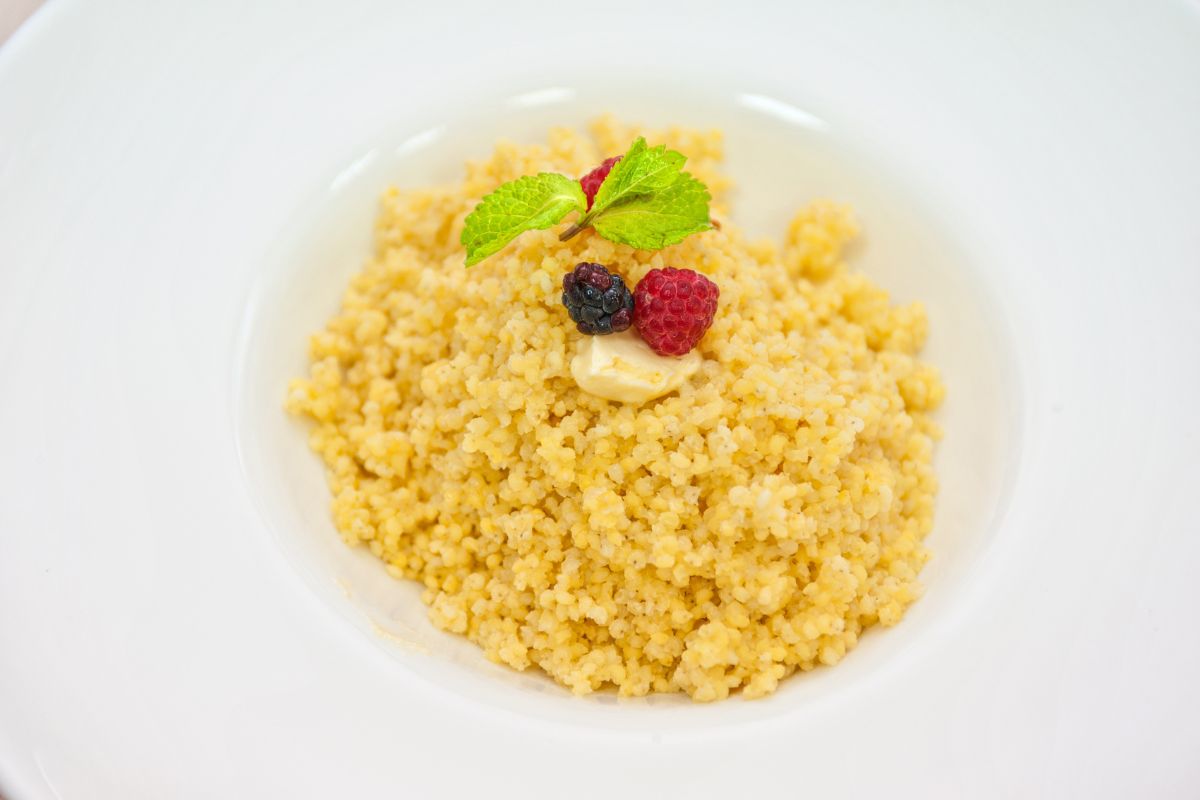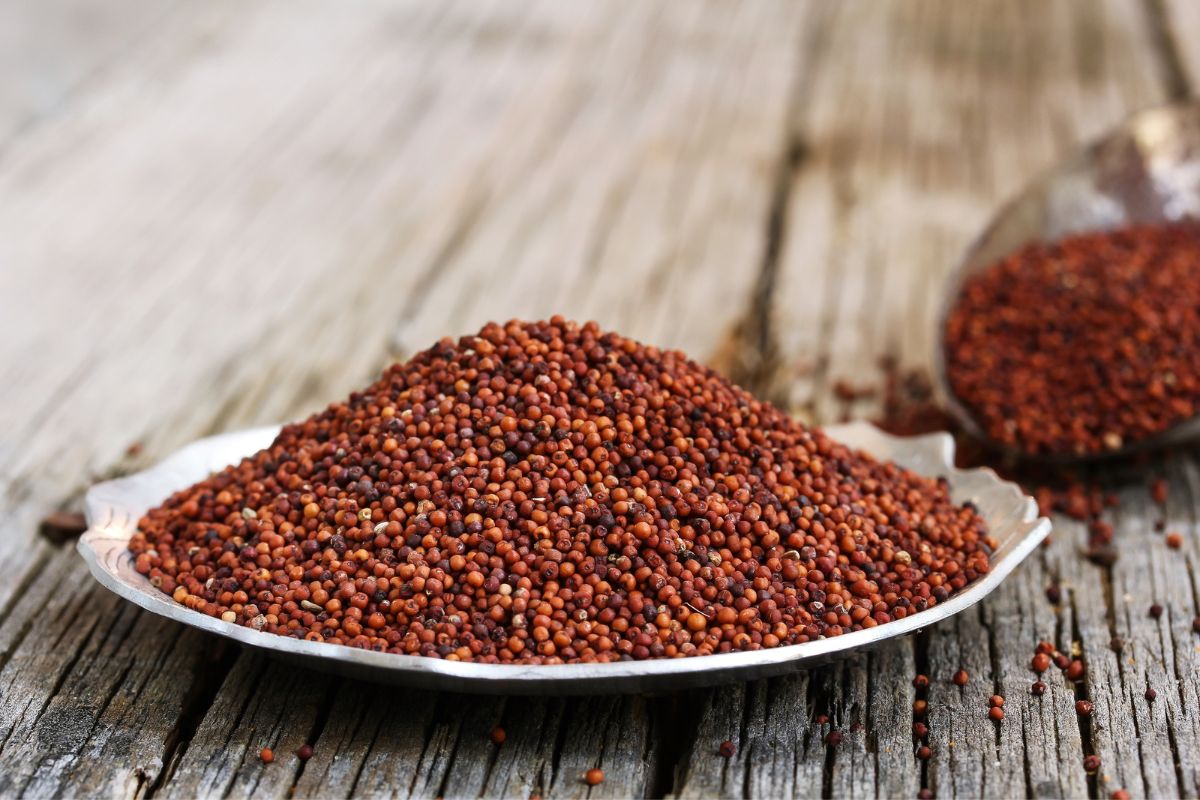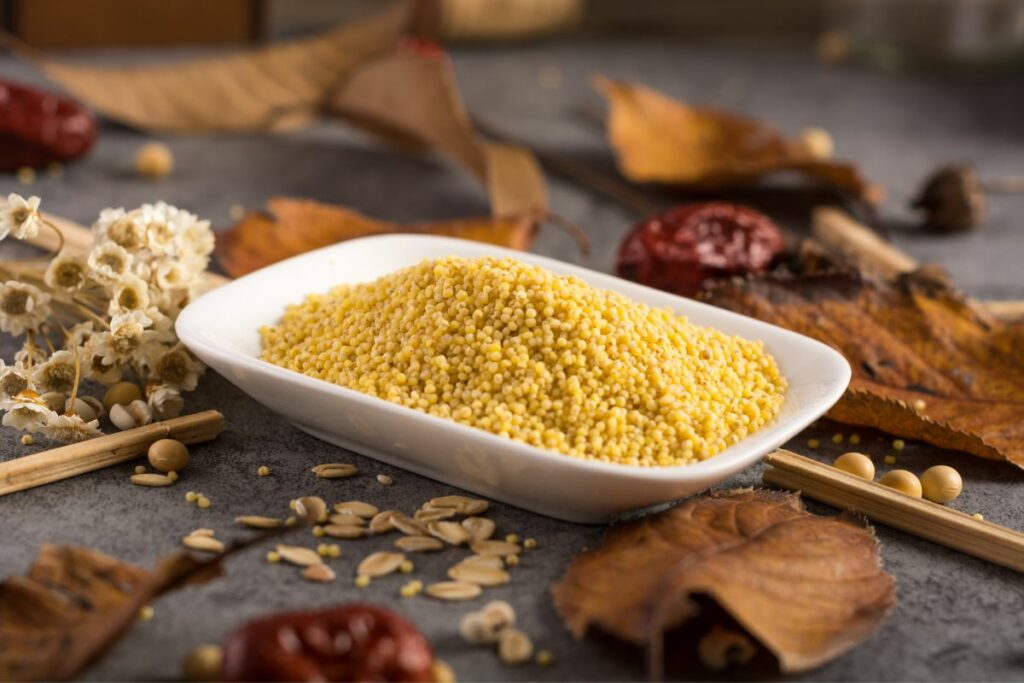Millet has been used as a dietary staple in cultures throughout the world for centuries because of its variety of health benefits.
Rich in nutrients like magnesium, phosphorus, and zinc, millet is high in fiber and can help reduce your risk of diabetes, heart disease, and cancer.
Along with being nutritious, studies have shown that eating millet can also help people lose weight.
In this article, we will explore the potential weight loss benefits one may experience following a millet diet.
We’ll discuss what millet is, how you can include it into your diet plan, and some tips for staying on track with any new meal plan.
Read ahead to discover more about the advantages of following the millet diet for weight loss, and the other health benefits that you can enjoy from this small but mighty grain.
What Is Millet?
Millet is a small, round grain that has been used as a dietary staple in cultures around the world for centuries. It is high in fiber and contains essential minerals like magnesium, phosphorus, and zinc.
Millet is also gluten-free and low in calories, making it an ideal choice for those looking to lose weight.
Health Benefits Of Millet
Millet is a nutrient-dense grain that can provide numerous health benefits. It is high in fiber, which helps to keep you feeling full for longer and can help reduce your risk of diabetes, heart disease, and cancer.
Millet also contains essential minerals like magnesium, phosphorus, and zinc, which are important for maintaining healthy bones and muscles, and which can be tricky to balance properly in the modern diet.
Millet is also low in calories and gluten-free, making it an ideal choice not only for those with allergies and intolerance to gluten but also a perfect option for those looking to lose weight.
Weight Loss Benefits Of Millet

So, just what are the benefits of millet for weight loss? We took a closer look:
1. High Fiber Content
One of the main advantages of millet is that it is high in fiber, which helps to keep you feeling full for longer and can help reduce your risk of overeating.
This can be especially beneficial for those looking to lose weight, as it can help to reduce cravings and snacking between meals.
2. Low-Calorie Content
Millet is low in calories, making it a great choice for those looking to lose weight. For context, a single cup of cooked millet contains only around 200 calories, which is significantly lower than other grains like rice and quinoa.
This makes it an ideal choice for those looking to cut their calorie intake without the need to sacrifice either nutrition or taste.
3. Gluten-Free
Millet is naturally gluten-free, making it a great option for those with allergies or intolerances to gluten, and making it a great choice for those looking to lose weight, as gluten-free diets tend to be lower in calories and higher in fiber than traditional diets.
4. High In Complex Carbohydrates
Millet is high in complex carbohydrates, which can help to keep you feeling full for longer and provide sustained energy throughout the day.
This can be especially beneficial for those looking to lose weight, as it can help to reduce cravings and snacking between meals.
5. Lowers Blood Sugar Levels
Millet is high in magnesium, which can help to lower blood sugar levels and reduce the risk of type 2 diabetes.
This can be especially beneficial for those looking to lose weight, as it can help to regulate insulin levels and reduce cravings for sugary snacks.
6. Low Glycemic Index
Millet has a low glycemic index, which means that it is slowly digested and absorbed into the bloodstream.
This can be beneficial for those looking to lose weight, as it can help to keep you feeling full for longer and reduce cravings for unhealthy snacks, ensuring that you stay on track with your weight loss goals for the long term.
Types Of Millets

There are several types of millet available, including pearl, foxtail, proso, and finger millet.
Each type has its unique flavor and texture, so it’s important to experiment with different varieties to find the one that best suits your tastes.
Pearl Or Bajra Millet
Pearl or bajra is a popular type of millet that is often used in oatmeal and other breakfast dishes.
It has a mild, nutty flavor and a slightly chewy texture, and is a popular option, thanks to being packed with nutrients such as fiber, protein, magnesium, and calcium.
According to experts, regular consumption of pearl millet can play a key role in reducing the risk of Type 2 diabetes, as well as cutting down your risk of developing asthma and even certain types of cancer.
Pearl millet also plays a key role in weight loss thanks to its high fiber content, which helps to keep you feeling full for longer and can help reduce your risk of overeating.
Foxtail Or Kangni Millet
Foxtail millet, often referred to as kangni millet, is the most widely consumed type of millet in India and is often used to make flatbread and other traditional dishes, as well as being a key ingredient in semolina and rice flour.
It has a mild, sweet flavor and a light, fluffy texture, and is exceptionally high in complex carbohydrates, as well as calcium and iron – these ingredients combine to create a powerful weight loss aid, as well as offering significant benefits to overall health and wellness.
Ragi Or Finger Millet
Finger millet, also sometimes referred to as ragi millet, is perfect if you are looking for a boost to your iron levels – this millet is naturally super high in iron, and this plays a key role in helping our bodies to produce energy.
This type of millet also ranks top for both calcium and potassium and is also high in fiber, which makes it a great choice for weight loss thanks to its slower digestion by the body, resulting in a fuller feeling for longer.
Jowar Or Sorghum Millet
Jowar, or sorghum millet, is a type of millet that is high in protein and fiber, making it an excellent choice for those looking to lose weight.
It also contains essential vitamins and minerals such as magnesium, iron zinc, and high levels of vitamin B, all of which can help to boost your overall health, and is one of the top choices if you are looking for antioxidants – these are essential for fighting off free radicals, which can cause damage to our cells and lead to a range of health issues.
As an added bonus, jowar or sorghum millet can also provide 20% of your recommended daily fiber intake in just a 96g serving, making this an easy way to maintain excellent gut health, keep blood sugar levels balanced, and help with weight management.
Final Thoughts
Overall, millet is an excellent choice for those looking to lose weight.
It is packed with essential vitamins and minerals, as well as fiber and protein, which can help to keep you feeling full for longer and reduce your risk of overeating, making this simple grain a key element in the fight to maintain a healthy, happy weight.








